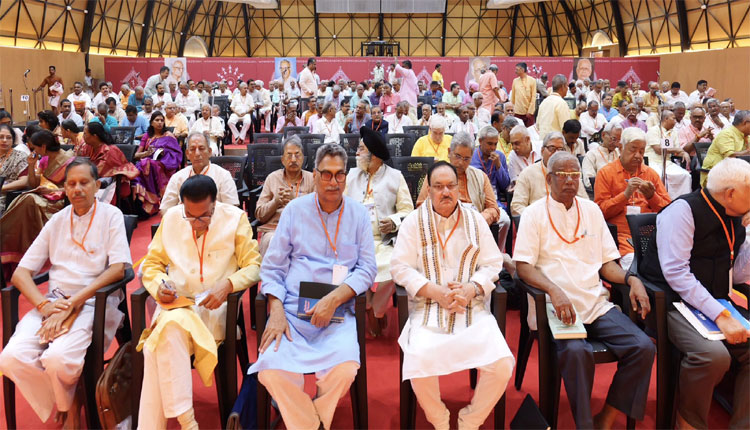Palakkad: The Rashtriya Swayamsevak Sangh (RSS) has initiated a three-day coordination meeting with its affiliated organisations in Palakkad, Kerala. While the gathering is expected to address key questions concerning the government and the organisation, political analysts are also interpreting the significance of the meeting’s location in Kerala. When asked why Palakkad was chosen as the venue, RSS publicity chief Sunil Ambekar simply replied, “Palakkad is a beautiful city, so we are holding the meeting here.”
However, insiders suggest there are deeper strategic reasons for this choice, driven by recent developments in the state.
Kerala in the Spotlight
In March, the RSS released data showing that 5,142 of its shakhas (branches) are currently active in Kerala. This accounts for nearly 9% of the 60,000 shakhas operating across India, indicating a significant presence in the southern state despite its relatively small population. The organisation recently divided Kerala into north and south divisions to manage the growing number of branches more effectively, aiming to establish 8,000 branches in the state by next year.
According to experts, such structural changes by the RSS often signal that the organisation feels it has achieved its goals in a particular region. The decision to focus on Kerala reflects the RSS’s growing interest in the state, where the Bharatiya Janata Party (BJP) recently made electoral inroads.
BJP Gains Ground in Kerala
The BJP has recently opened its account in the Kerala Lok Sabha by winning the Thrissur seat and securing the second position in Thiruvananthapuram. This is the first time the party has won a seat in South Kerala since its inception. The party’s improved performance has bolstered both the BJP and the RSS, with the BJP leading in 11 Kerala Assembly seats, including six in Thrissur, two in Athangal, and three in Thiruvananthapuram.
In addition, the BJP finished second in nine other seats, including three in Thiruvananthapuram, one in Athangal, two in Alappuzha, one in Palakkad, and two in Kasaragod. Kerala has a total of 140 assembly seats, with the next elections due in 2026.
According to the Election Commission, the BJP secured 19.24% of the votes in Kerala during the recent Lok Sabha elections, an increase of over 3% compared to 2019, when it garnered 15.64%. This vote share is higher than the 12.41% recorded in the 2021 assembly elections, reflecting a steady rise in support in a state traditionally dominated by the Left and the Congress.
Drawing Parallels with West Bengal
The RSS and BJP see parallels between their strategy in Kerala and their experience in West Bengal, where the BJP made significant gains in the 2019 Lok Sabha elections, winning 18 seats and increasing its vote share by 22% compared to 2014. The rise of the BJP in Bengal was attributed to a shift in votes from the Left, which lost 16% of its support in the same election. Some observers believe that a similar pattern could unfold in Kerala, where anti-incumbency sentiment against the ruling Left government, in power for a decade, is gaining momentum.
Focus on Social and Political Issues
During the meeting, a report was presented highlighting the work done by RSS workers during the floods in Wayanad. The event, attended by around 300 office-bearers, including RSS chief Mohan Bhagwat, Sarkaryawah Dattatreya Hosabale, BJP President JP Nadda, and Organisation General Secretary BL Santhosh, will cover major political and social issues, including strategies for caste mobilisation and the future leadership of the BJP.



Comments are closed.